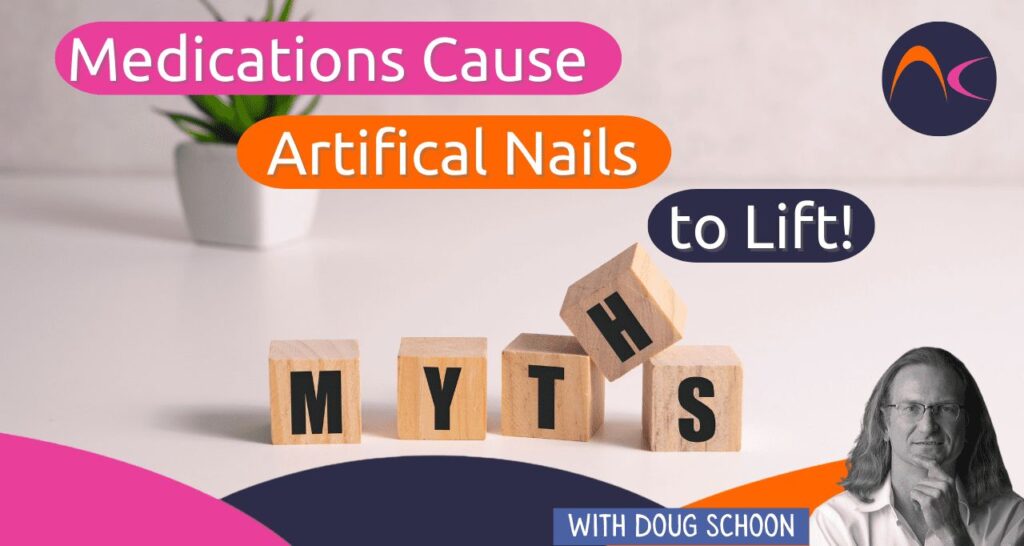Normally, these are not likely to cause these problems and here’s why.
The natural nail is a window
Doctors often state that the health of the natural nail is a window into the health of the individual, so some suspect medications are causing problems with adhesion. Most likely, taking medication for a month or two isn’t going to affect the adhesion of artificial nails or coatings to the nail plates. The same is true for over-the-counter (OTC) medications, which are typically taken only for a few weeks. There are certain medications that when taken for long periods can affect the way the body functions and may affect nail growth. However, this is would be uncommon for medications, in general.
An example of medications that do affect nail plate growth are chemotherapy drugs since they can halt growth. Anaesthetic given during surgery is sometimes blamed for nail problems such as lifting, but I’ve seen no evidence to support this.
People are often leery of medication of any type and tend to jump to this conclusion quickly when they see problems with their nails. It is far more likely that medications would affect nail growth than nail coating adhesion.
Do not suspect medications for causing lifting
Nail technicians should not suspect medications for causing lifting until all other potential sources of the problem have been investigated and ruled out. Medications are rarely the cause of artificial nail adhesion loss and it is more likely caused by something the client is doing, e.g. a sudden lifestyle change.
If a person is taking a lot of medications and their nails are in poor condition, it is more likely that the condition of the nail plate is due to poor health of the body, and not the medications. For instance, those taking heart medication may also have blood pressure and circulation problems and these health issues are far more likely to adversely affect the condition of new nail growth, than would the medications themselves.


